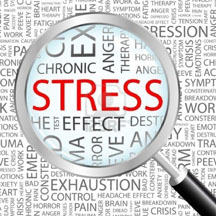 While many of us are fully aware of how weather has the ability to affect our physical health, the majority of people today are completely ignorant of the affects weather can have on our mental health. Rain or shine, hot or cold, tornado or hurricane- weather can have a dominating effect on the way we feel and translate the world around us.
While many of us are fully aware of how weather has the ability to affect our physical health, the majority of people today are completely ignorant of the affects weather can have on our mental health. Rain or shine, hot or cold, tornado or hurricane- weather can have a dominating effect on the way we feel and translate the world around us.
According to a 2014 climate change study, “climate change and related weather events and environmental changes can profoundly impact psychological well-being and mental health.” (1) To help you learn just how weather may be impacting you beyond just the physical, here are 3 ways weather may be affecting your mental health.
1. Stress. If you have been the victim of a natural disaster, you may be more likely to develop post-traumatic stress disorder. But you don’t have to be the outcome of a hurricane, tornado, or earthquake to feel the increased stress they can cause on ones’ life. Simply living in a region prone to more drastic weather can easily send your stress levels through the roof.
2. Anxiety and depression. When it comes to mental health, anxiety and depression are key areas to be potentially hit by weather’s impact. Results in a 2012 study comparing temperature and humidity vs mental health emergency room visits suggested an increased use of emergency departments for mental and psychosocial problems the higher the temperature. (2) Many of these visits were due to anxiety, depression, anxiousness, and even stress.While warmer temperatures and pleasant weather can reap positive effects like higher mood and improved memory at first, over a short period of time these positive effects evolve into more of the negative effects discussed above. Likewise, many love the first hot summer day. They enjoy soaking up the sun by spending time outdoors in the heatwave. But if that heatwave continues over an entire week, most people would begin yearning for relief.
3. Addictions and suicide. Unfortunately, weather can affect people on an even higher scale, aiding in addictions and suicides among the population. According to a study conducted on the effects of sunshine on suicide rates, “…sunshine, via interactions with serotonin neurotransmission, may trigger increased impulsivity and promote suicidal acts.” (3) The ongoing combination of stress, anxiety, and depression may put those already more susceptible to mental illnesses at a higher risk for developing addictions and even committing suicide.
We are all well aware of the physical affects weather can have on both people and the world around us but it’s important to also shed light on the mental health impact of weather. Oftentimes, being proactive in mentally preparing for changes in weather can be just as beneficial as stocking up on bottled water and flashlights. By choosing a region with weather trends you can better anticipate and mentally prepare for, you can help brace yourself for weather’s negative impact on stress, anxiety and depression, addictions, and suicide both physically and mentally.
Mark D. Parisi, Psy.D. & Associates, P.C. provides counseling, psychological testing, and psychotropic medication management in Mount Prospect and Chicago – serving surrounding Cook, Lake, DuPage, and Will Counties. They accept most insurance and offer extremely affordable sliding scale rates. Call (847) 909-9858 for a free, no-obligation telephone consultation.
###
Sources:
- Climate Change: The Next Challenge for Public Mental Health?, Weather effects mental health quote, 2014, http://www.ncbi.nlm.nih.gov/pubmed/25137107
- Relationship Between Ambient Temperature and Humidity and Visits to Mental Health Emergency Departments in Quebec, Study findings for connection between heat and mental health emergency visits, 2012, http://www.ncbi.nlm.nih.gov/pubmed/23117515
- Effects of Sunshine On Suicide Rates, Sunshine and suicide rates quote, 2012, http://www.ncbi.nlm.nih.gov/pubmed/21821241


 According to the key findings of the American Psychological Association (APA), there are 2 terrible truths about stress today (1). To help you better understand these truths and in return your own personal stress, here’s more.
According to the key findings of the American Psychological Association (APA), there are 2 terrible truths about stress today (1). To help you better understand these truths and in return your own personal stress, here’s more. Between televisions, video games, tablets, computers, and smartphones children today are bombarded with an overwhelming supply of screen technology but is all the screen time weighing too heavily on your child? In 2013 the average 8 to 10-year-old spent nearly 8 hours every day with a variety of different media, and teenagers spent eleven or more hours per day, according to the American Academy of Pediatrics (AAP).(1). Yikes!
Between televisions, video games, tablets, computers, and smartphones children today are bombarded with an overwhelming supply of screen technology but is all the screen time weighing too heavily on your child? In 2013 the average 8 to 10-year-old spent nearly 8 hours every day with a variety of different media, and teenagers spent eleven or more hours per day, according to the American Academy of Pediatrics (AAP).(1). Yikes! We see hideous crimes committed regularly in society. There is almost always something horrific in the news that you would think, “Clearly that person must be insane to commit such a horrible crime against humanity.” And so, we watch as they choose to plea insanity. Now, the significance of proving insanity in the court room is that if you are deemed insane you are no longer eligible for the death penalty and cannot be held responsible for your actions in the same way a sane person would be, according to the U.S. Criminal Resource Manual. (1) An obvious draw for completely sane people to want to fake a mental illness, right?
We see hideous crimes committed regularly in society. There is almost always something horrific in the news that you would think, “Clearly that person must be insane to commit such a horrible crime against humanity.” And so, we watch as they choose to plea insanity. Now, the significance of proving insanity in the court room is that if you are deemed insane you are no longer eligible for the death penalty and cannot be held responsible for your actions in the same way a sane person would be, according to the U.S. Criminal Resource Manual. (1) An obvious draw for completely sane people to want to fake a mental illness, right? It is common for people to have emotional highs and lows caused by everyday stress. However, there are some people who suffer from a severe mental illness known as bipolar disorder in which sudden shifts in mood and energy may be seen on a regular basis (1). These mood swings can negatively affect a person’s home life as well as his career if they are not controlled as well as possible. However, as with most mental illnesses, having a consistent routine can ease the symptoms and make the disorder easier to handle. There are 3 areas of consistency that should be met.
It is common for people to have emotional highs and lows caused by everyday stress. However, there are some people who suffer from a severe mental illness known as bipolar disorder in which sudden shifts in mood and energy may be seen on a regular basis (1). These mood swings can negatively affect a person’s home life as well as his career if they are not controlled as well as possible. However, as with most mental illnesses, having a consistent routine can ease the symptoms and make the disorder easier to handle. There are 3 areas of consistency that should be met.
 Not only can constructive anger help an immediate relationship or situation, it can have positive effects on the future as well. Studies have shown the repressed anger is more likely to result in violence than immediately expressed anger (3). The following are a few of the positive aspects of anger.
Not only can constructive anger help an immediate relationship or situation, it can have positive effects on the future as well. Studies have shown the repressed anger is more likely to result in violence than immediately expressed anger (3). The following are a few of the positive aspects of anger. While many of us are familiar with ways to both control and cope with depression symptoms, you may be surprised to learn that research findings show we may also be able to help prevent them. According to the American Psychological Association (APA) psychologists Jane Gillham, Lisa Jaycox, Karen Reivich, and Martin Seligman all set out to prove just that (1).
While many of us are familiar with ways to both control and cope with depression symptoms, you may be surprised to learn that research findings show we may also be able to help prevent them. According to the American Psychological Association (APA) psychologists Jane Gillham, Lisa Jaycox, Karen Reivich, and Martin Seligman all set out to prove just that (1). The majority of people have experienced at least one break up. In fact, a study in 2011 showed that 37% of people ages 18 to 35 had been through at least one break up in the past 20 months (1). Regardless of the circumstances or the length and seriousness of the relationship, breaking up is hard to do. The mental and social side effects can sometimes be devastating. What can you do to make it easier on yourself?
The majority of people have experienced at least one break up. In fact, a study in 2011 showed that 37% of people ages 18 to 35 had been through at least one break up in the past 20 months (1). Regardless of the circumstances or the length and seriousness of the relationship, breaking up is hard to do. The mental and social side effects can sometimes be devastating. What can you do to make it easier on yourself? With over 35 percent of all U.S. marriages ending in divorce according to the Centers for Disease Control and Prevention (CDC), shared or split custody of children is becoming part of the norm. (1) But how do parents cope with shared custody of their children?
With over 35 percent of all U.S. marriages ending in divorce according to the Centers for Disease Control and Prevention (CDC), shared or split custody of children is becoming part of the norm. (1) But how do parents cope with shared custody of their children?